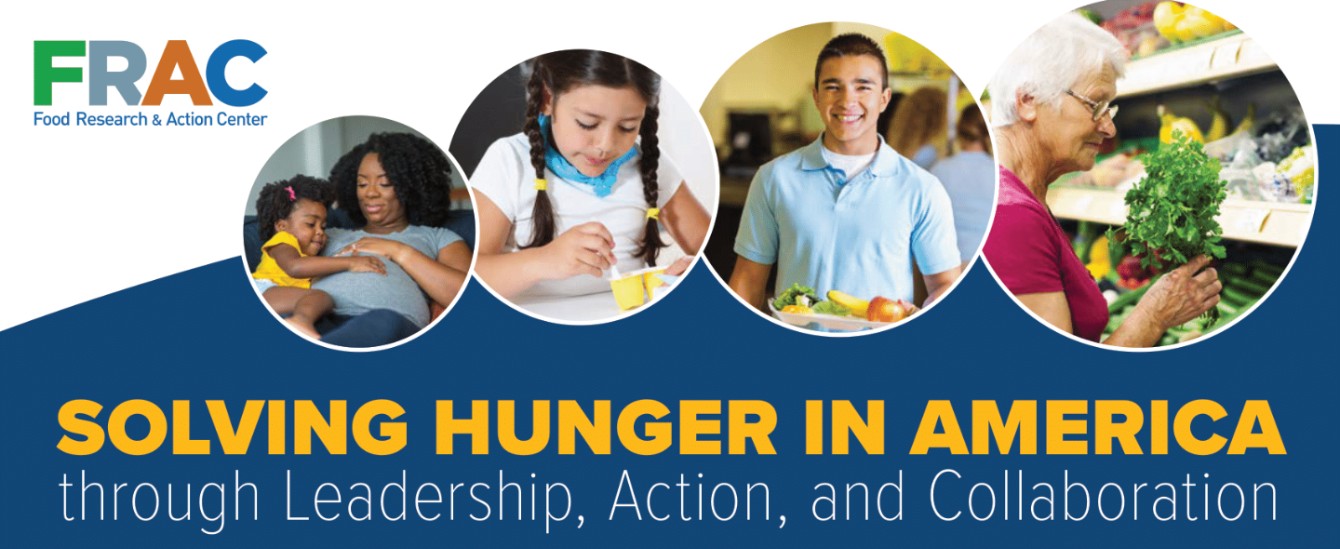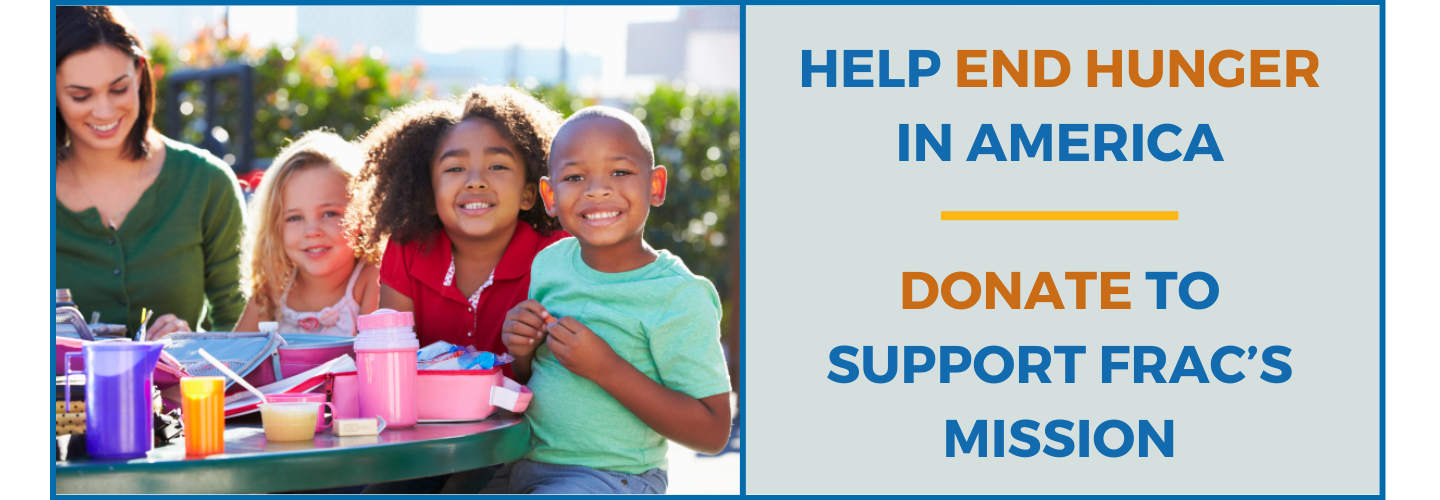Take Action Today

#WhyILoveSNAP
Take part in FRAC’s #WhyILoveSNAP campaign throughout February to lift up why SNAP matters to millions of people — including children, older adults, veterans, and people with disabilities — and urge Congress to repeal the harmful SNAP cuts in the budget reconciliation law (H.R. 1).
- Get vocal on social: Use this toolkit to copy and paste posts and graphics, or as inspiration to create your own, to show the power of SNAP and to pressure Congress to reverse the cuts to SNAP.
- Make headlines: Submit a letter to the editor to your local paper in a few simple steps using this tool.
- Share stories on why SNAP matters and the harmful ripple effects of SNAP cuts.
- Spread the word: Encourage your local and state policymakers and other stakeholders to participate in the campaign.
Together, we can show our love for families and communities and help ensure that Congress hears loud and clear why SNAP must be restored and protected.

Congress Must Act Quickly to Restore Harmful SNAP Cuts
Congress must take immediate action to repeal the devastating cuts and harmful impacts on the Supplemental Nutrition Assistance Program (SNAP) that were included in the budget reconciliation law, H.R. 1. Anti-hunger advocates are urging Members of Congress to cosponsor and support the Restoring Food Security for American Families and Farmers Act of 2025, which repeals the cuts to SNAP.
Advocacy Needed to Reinstate USDA’s Food Security Report
Use the FRAC Action Network to urge your Members of Congress to reach out to the U.S. Department of Agriculture and demand it reinstate the Economic Research Service Household Food Security report, the gold standard for measuring hunger in America. Your message matters. Hunger will not end by ignoring it. Congress needs to act now.
Urge Your House Representative to Cosponsor the MODERN WIC Act
Ask your Representative to join the growing list of cosponsors for the More Options to Develop and Enhance Remote Nutrition (MODERN) WIC Act (H.R. 1464).
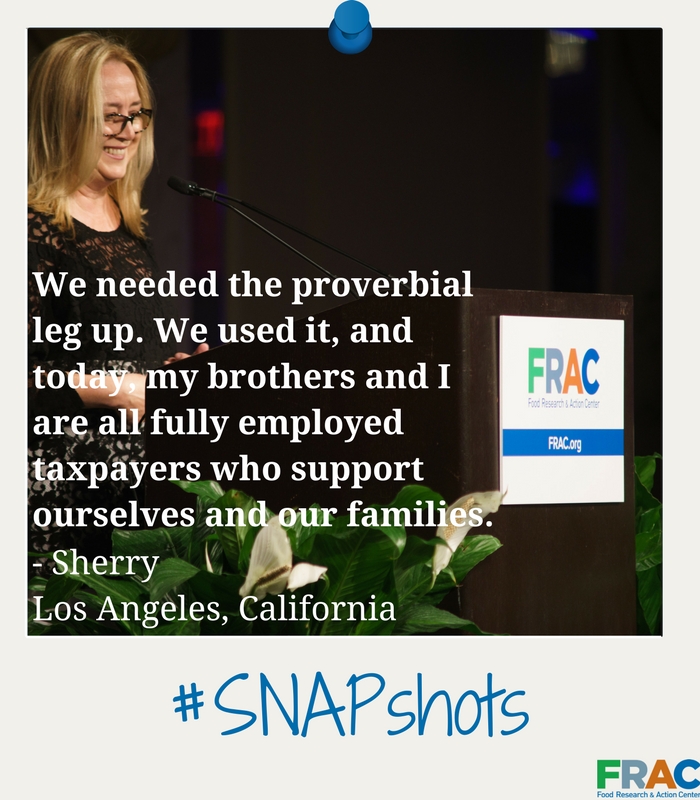
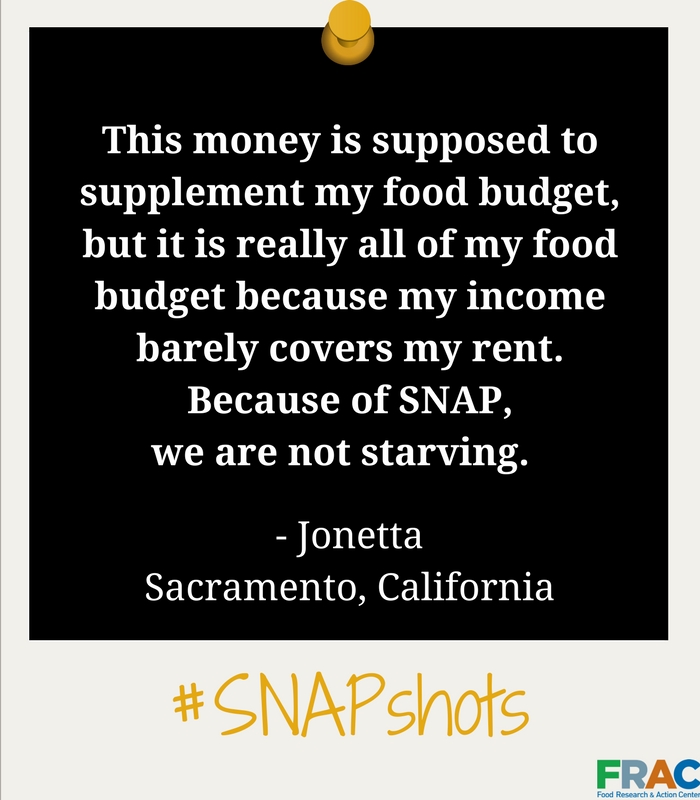
Resources
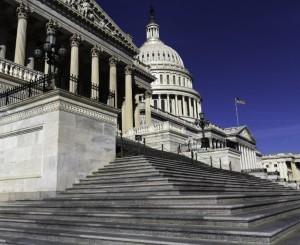
Legislative Action Center
Take Action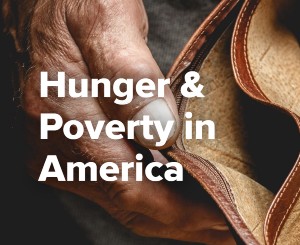
Hunger & Poverty in America
Explore the Data
Summer EBT Resource Center
Learn more
Healthy School Meals for All
Learn More
National SNAP Fact Sheet
Learn More
State-by-State SNAP Fact Sheets
Learn More
State-by-State CEP Fact Sheets by Congressional District
Learn More
News
FRAC Chat
The Summer Electronic Benefit Transfer Program (Summer EBT) is entering its third year, and the window for states to opt in for 2026 has closed.
Thirty-eight states, Washington D.C., five Indian Tribal Organizations, and all five U.S. territories submitted a notice of intent by the January 1 deadline and are poised to implement Summer EBT this year. This includes Iowa, which will be operating Summer EBT for the first time.
Q&A With Economist and Bestselling Author, Daniel Altman
The federal budget reconciliation law (H.R. 1 /OBBBA) represents the most significant rollback of the Supplemental Nutrition Assistance Program (SNAP) in history. While Congress passed this law at the federal level, its most significant effects will be experienced in cities and towns.
Recent Publications & Data
See More Resources- Fact Sheet
Congress must take immediate action to ensure the Farm Bill — or any legislation — reverses the devastating cuts and harmful impacts on the Supplemental Nutrition Assistance
Read the fact sheet
Program (SNAP) that were included in the budget reconciliation law, H.R. 1. Protecting SNAP is protecting America’s health, economy, and future. - Report
The budget reconciliation law (H.R. 1) represents the most significant retrenchment of the Supplemental Nutrition Assistance Program (SNAP) in decades. FRAC’s City Playbook is designed to help municipal leaders understand the scope of what’s coming, anticipate challenges, and prepare coordinated responses with state, federal, and community partners.
Read the playbook - Best Practice
The federal Summer EBT Program helps to ensure that more children from households with low incomes have access to adequate nutrition during the summer months. Learn how schools and school nutrition staff can play a critical part in ensuring the success of the program, along with outreach best practices from schools across the country.
Read the fact sheet - Best Practice
Download this practical checklist to help transition‑age youth with foster care experience and/or housing insecurity keep or apply for SNAP as new time limits from the budget reconciliation law (H.R. 1) take effect. It equips advocates and caseworkers with clear guidance to support young people who rely on SNAP to put food on the table while navigating the adult world of work, training, and housing.
Download the checklist




